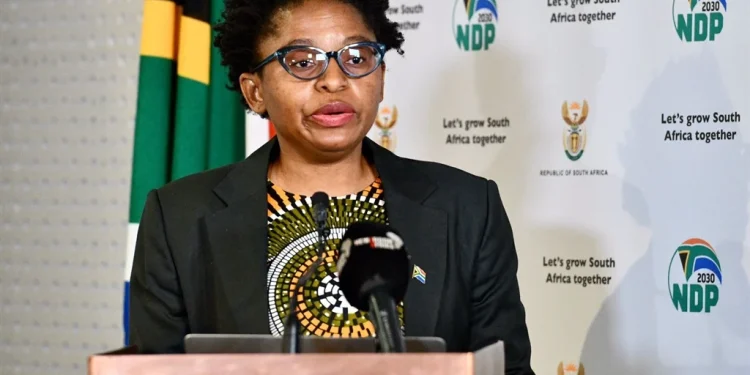Khumbudzo Ntshavheni, recently appointed Minister in the South African government, has introduced a new operational framework aimed at improving the efficiency and cohesion of the Cabinet. This announcement comes after the swearing-in of 11 ministers and 43 deputy ministers as part of the seventh administration’s Cabinet, which includes 75 members from nine different political parties.
In her address to the nation, Ntshavheni underscored the importance of functional harmony among Cabinet members, despite potential ideological differences. She stated, “Our commitment to effective governance surpasses any individual political disagreements. This Cabinet is tasked with addressing urgent national issues, and it is crucial that we operate as a united front.”
New Decision-Making Protocols
A key feature of the new administration is the implementation of structured decision-making protocols. Ntshavheni noted that unlike previous African National Congress (ANC) administrations, where consensus was often determined by voting, the new Cabinet will adopt a more deliberate approach to policymaking. Each policy issue will undergo thorough evaluation by the 32-member executive committee before being presented for further discussion.
“This structured approach allows for meaningful dialogue on policies, ensuring all perspectives are considered and avoiding hasty decisions,” she said. The process also involves the chief executives of major government departments, who will meet in technical groups before proposals are forwarded to the Forum of South African Directors General (FOSAD) and then to ministerial teams.
Commitment to Unity and Effective Governance
Ntshavheni emphasized that these established procedures are essential for maintaining the unity and functionality of the newly formed Government of National Unity (GNU). By adhering to a clear framework, the Cabinet aims to eliminate the obstacles that have historically hindered government action and policymaking.
“We acknowledge the diversity of views within our Cabinet, but this diversity is a strength that can be harnessed productively. Our commitment to transparency and sound governance will guide us as we navigate complex national challenges,” she asserted.
Her remarks highlighted the Cabinet’s strategy for managing policy disagreements while promoting collaboration among members. The new approach is designed to foster a cooperative environment where differing opinions can be constructively debated within defined boundaries.
Implications for Governance
The implications of these new protocols are significant for South Africa’s governance landscape. By introducing a more structured decision-making process, the Cabinet aims to streamline operations and enhance accountability. This is particularly important as the country faces multiple critical issues, including economic recovery, public service delivery, and social justice.
Ntshavheni’s focus on effective functioning within the Cabinet reflects a broader commitment to restoring public trust in government institutions. As South Africa continues to navigate its political complexities, the success of this new operational framework could serve as a litmus test for the GNU’s ability to deliver on its promises to the electorate.
In conclusion, Khumbudzo Ntshavheni’s outline of the new Cabinet’s operational structure marks a pivotal shift in how governance will be approached in South Africa. By prioritizing structured decision-making and unity among diverse political factions, the administration aims to create a more responsive and accountable government capable of addressing the needs of its citizens. As the new Cabinet embarks on its journey, the nation will be closely watching to see if these goals translate into tangible progress.






















